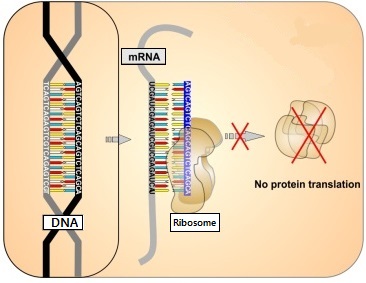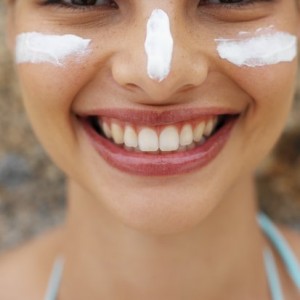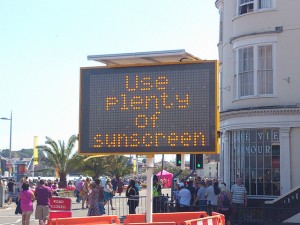Skin cancer. It is the most common form of cancer, affecting over 3.5 million people in the United States alone. The incidence of skin cancer is steadily increasing in frequency each year and in fact about one out of every five Americans will develop some form of skin cancer in their lifetime.
Currently, we have many available treatments for these skin cancers except none of them are very efficient. That’s because they not only affect tumors, but they’re also damaging perfectly healthy tissue, and that’s where this new RNA treatment comes in.
We want to find a way to specifically target skin cancers without damaging any other surrounding cells. But cancer work is rarely that simple or easy because cells are quite frankly very complicated. If one of your cells was a city, then this is what the subway map might look like.
A city has more than just the subway. There are buildings, roads, airports and buses. This process here is only a portion of what the cell does but it’s extremely important, nonetheless. This particular map illustrates cellular metabolism—the collection of the entire chemical processes that occur in a cell in order to maintain life. Now each other subway stations represent a chemical and the lines that connect them represent proteins. We want to find a single protein out all of these that is only expressed in skin cancers and not in healthy skin cells and it’s found to be Malonyl CoA Acyl carrier protein transacylase, or MCAT for short.
MCAT plays a very specific role in the cell to convert one chemical into another except it functions in the larger pathway that is responsible for the cell’s production of energy. Without MCAT, this entire pathway falls apart and the cell is no longer capable of generating large sums of energy. Thus, in healthy skin cells, because they don’t use very much energy, the cells were able to function normally without MCAT. On the other hand, because skin cancer cells grow so rapidly and consume so much energy, MCAT activity was essential for their survival.
But how was this possible?
Normally, a ribosome translates a messenger RNA in order to produce the mature MCAT protein. However, translation can be interfered with this process by binding a short strand of RNA to the messenger RNA. This then physically blocks the ribosome preventing it from producing the MCAT protein.
So what do we do here? In the future, we will be able to develop a lotion that can deliver a drug to inhibit MCAT. People can apply the solution to a region with a potential skin tumor. As a result there preventing the onset of skin cancer without affecting any of the surrounding tissue. A treatment like this is not only much more effective than current therapies, it’s also more accessible less invasive and much cheaper.
Written by Seungwon Lee





